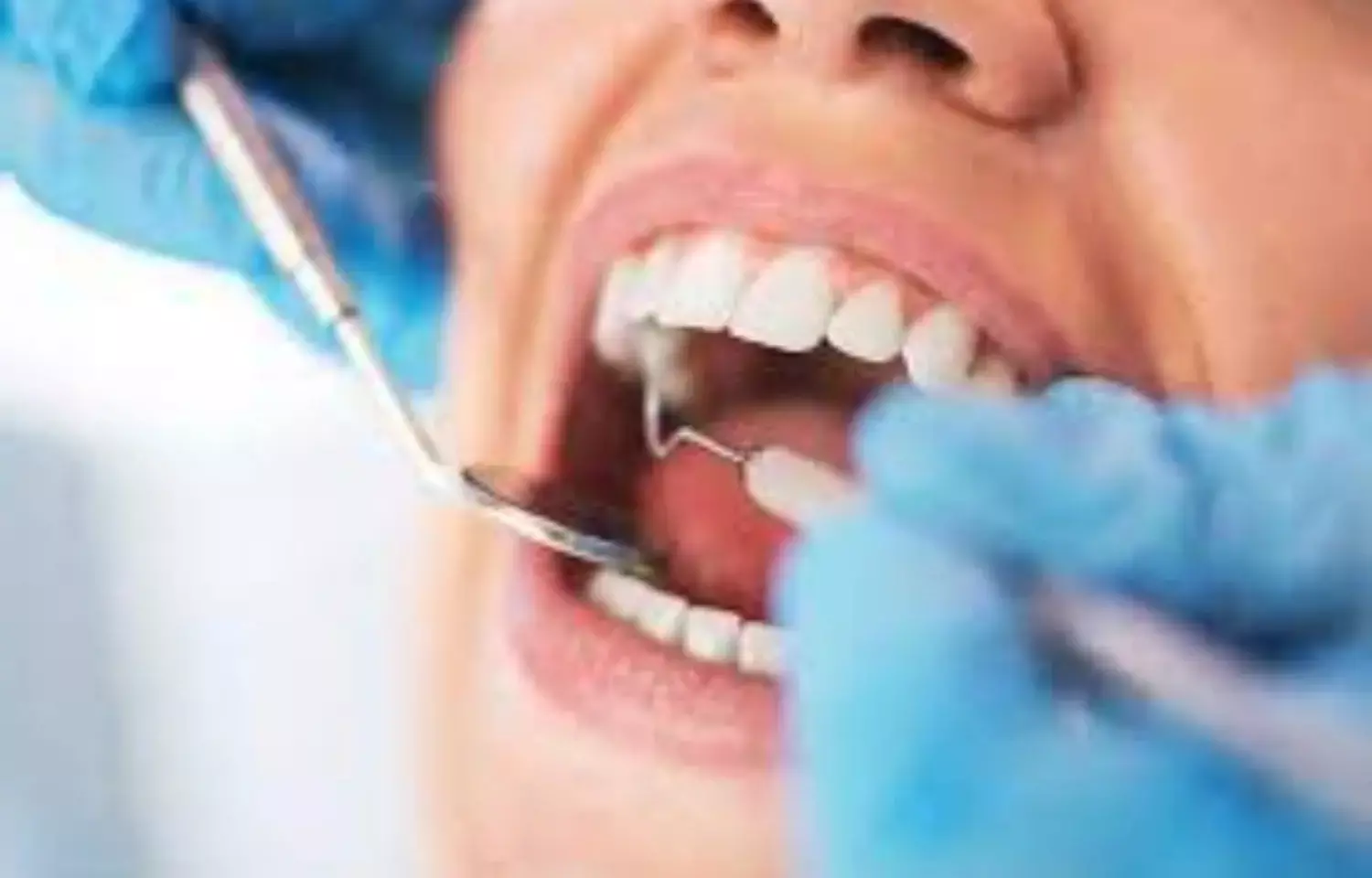- Home
- Medical news & Guidelines
- Anesthesiology
- Cardiology and CTVS
- Critical Care
- Dentistry
- Dermatology
- Diabetes and Endocrinology
- ENT
- Gastroenterology
- Medicine
- Nephrology
- Neurology
- Obstretics-Gynaecology
- Oncology
- Ophthalmology
- Orthopaedics
- Pediatrics-Neonatology
- Psychiatry
- Pulmonology
- Radiology
- Surgery
- Urology
- Laboratory Medicine
- Diet
- Nursing
- Paramedical
- Physiotherapy
- Health news
- Fact Check
- Bone Health Fact Check
- Brain Health Fact Check
- Cancer Related Fact Check
- Child Care Fact Check
- Dental and oral health fact check
- Diabetes and metabolic health fact check
- Diet and Nutrition Fact Check
- Eye and ENT Care Fact Check
- Fitness fact check
- Gut health fact check
- Heart health fact check
- Kidney health fact check
- Medical education fact check
- Men's health fact check
- Respiratory fact check
- Skin and hair care fact check
- Vaccine and Immunization fact check
- Women's health fact check
- AYUSH
- State News
- Andaman and Nicobar Islands
- Andhra Pradesh
- Arunachal Pradesh
- Assam
- Bihar
- Chandigarh
- Chattisgarh
- Dadra and Nagar Haveli
- Daman and Diu
- Delhi
- Goa
- Gujarat
- Haryana
- Himachal Pradesh
- Jammu & Kashmir
- Jharkhand
- Karnataka
- Kerala
- Ladakh
- Lakshadweep
- Madhya Pradesh
- Maharashtra
- Manipur
- Meghalaya
- Mizoram
- Nagaland
- Odisha
- Puducherry
- Punjab
- Rajasthan
- Sikkim
- Tamil Nadu
- Telangana
- Tripura
- Uttar Pradesh
- Uttrakhand
- West Bengal
- Medical Education
- Industry
Poor Oral Health Significantly Linked to Pre-Eclampsia in Pregnancy: Study

Poor oral health, in terms of a higher Decayed, Missing, and Filled Teeth (DMFT) index and higher dental plaque, has been found to have a significant correlation with pre-eclampsia among pregnant women. Pre-eclampsia is a multifaceted hypertensive pregnancy disorder that threatens the baby's and mother's health. The study was published in the journal Clinical and Experimental Dental Research by Mehdi S. and colleagues.
The case–control study involved 140 pregnant women who were recruited from antenatal clinics. The volunteers were divided into two approximately equal groups: 70 pregnant women with pre-eclampsia (case group) and 70 healthy pregnant women (control group). Both groups were matched for obstetric and demographic characteristics including age, gestational age, and number of pregnancies in order to reduce confounding variables.
Oral health of each participant was tested by means of two well-validated instruments: the DMFT Index to assess numbers of decayed, missing and filled teeth, and the Plaque Index (PI) to quantify dental plaque. Statistical analyses such as chi-square tests, independent t-tests, and multiple logistic regression were applied to examine the connection between oral health and pre-eclampsia.
Key Findings
• The findings indicated that pregnant women with pre-eclampsia had much poorer dental health.
• The case group mean DMFT index was 11.70 ± 2.88 while the control group had a mean DMFT index of 9.21 ± 2.24 (p < 0.001).
• Likewise, the Plaque Index was significantly higher in the case group with an average of 33.26 ± 9.21 compared to 28.30 ± 7.26 for the control group (p < 0.001).
• The statistical model proved that with a one-unit rise in the DMFT index, there was a 19% increase in the odds of pre-eclampsia.
• Similarly, each one-unit increase in PI had a corresponding 5% rise in the odds of pre-eclampsia.
• All these results were statistically significant (p < 0.001), meaning poor oral health had a strong and independent correlation with pre-eclampsia.
The study concludes that plaque and dental caries are both independently linked with pre-eclampsia in pregnant women. These indices of oral health, besides marking local dental disease, are also implicated in systemic inflammatory processes associated with pregnancy-induced hypertensive disorders. Assessment and treatment of oral health integrated into antenatal services can be an integral factor to improving maternal and fetal outcomes.
Reference:
Dr Riya Dave has completed dentistry from Gujarat University in 2022. She is a dentist and accomplished medical and scientific writer known for her commitment to bridging the gap between clinical expertise and accessible healthcare information. She has been actively involved in writing blogs related to health and wellness.
Dr Kamal Kant Kohli-MBBS, DTCD- a chest specialist with more than 30 years of practice and a flair for writing clinical articles, Dr Kamal Kant Kohli joined Medical Dialogues as a Chief Editor of Medical News. Besides writing articles, as an editor, he proofreads and verifies all the medical content published on Medical Dialogues including those coming from journals, studies,medical conferences,guidelines etc. Email: drkohli@medicaldialogues.in. Contact no. 011-43720751


